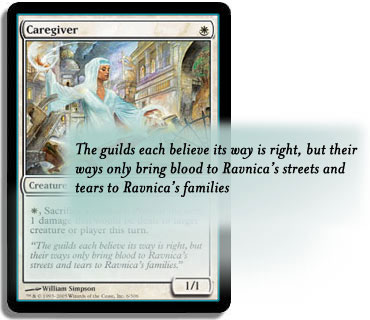4.7. Theme¶
Theme is the part of the game that do not directly affect gameplay at all.
If it doesn’t matter in terms of gameplay, why bother with this at all? There are two main reasons. First, the setting provides an emotional connection to the game. Player generally find it hard to really care about the pawns on my chessboard the way they care about a Dungeons & Dragons character. And while this doesn’t necessarily make one game “better” than another, it does make it easier for a player to become emotionally invested in the game.

Wizards Of The Coast has an insteresting series of blog posts on how they write flavor text for magic cards.
The other reason is that a well-chosen theme can make a game easier to learn and easier to play, because the rules make sense. The piece movement rules in Chess have no relation to the theme and must therefore be memorized by someone learning the game. By contrast, the roles in the board game Puerto Rico have some relation to their game function: the builder lets you build buildings, the mayor recruits new colonists, the captain ships goods off to the Old World, and so on. It is easy to remember what most actions do in the game, because they have some relation to the theme of the game.
